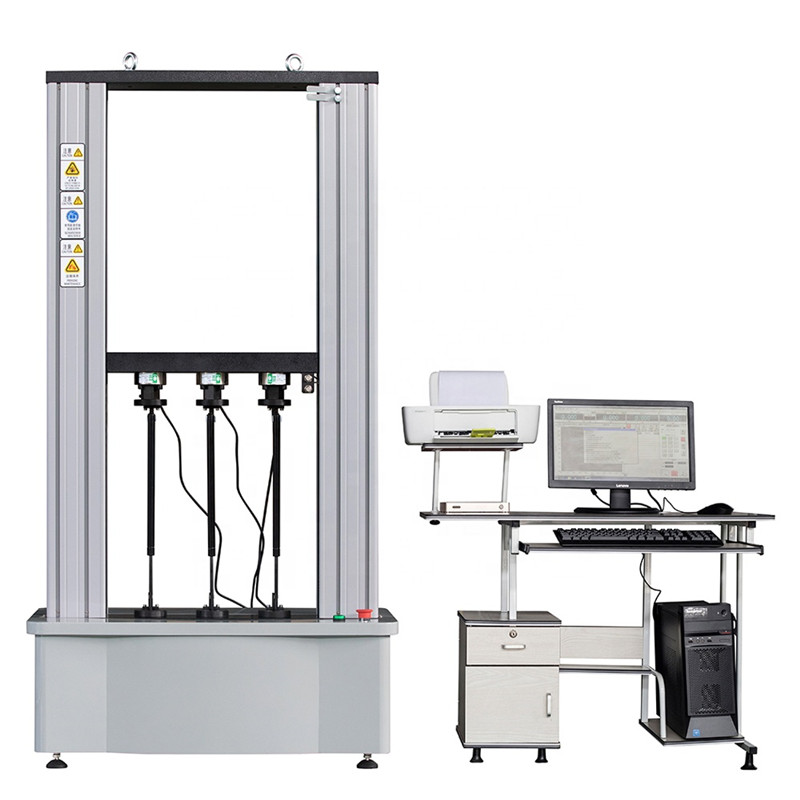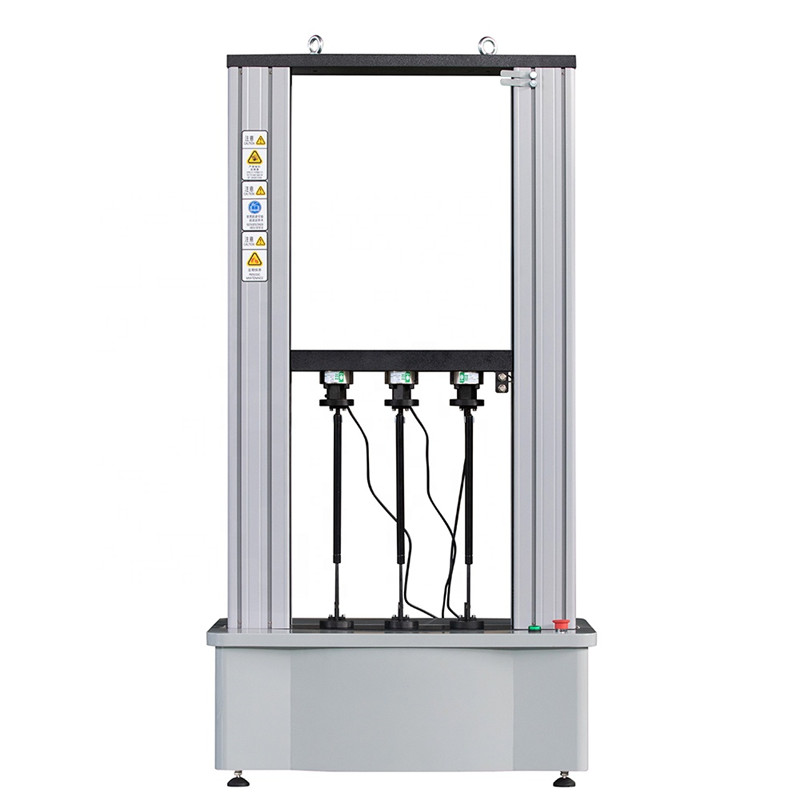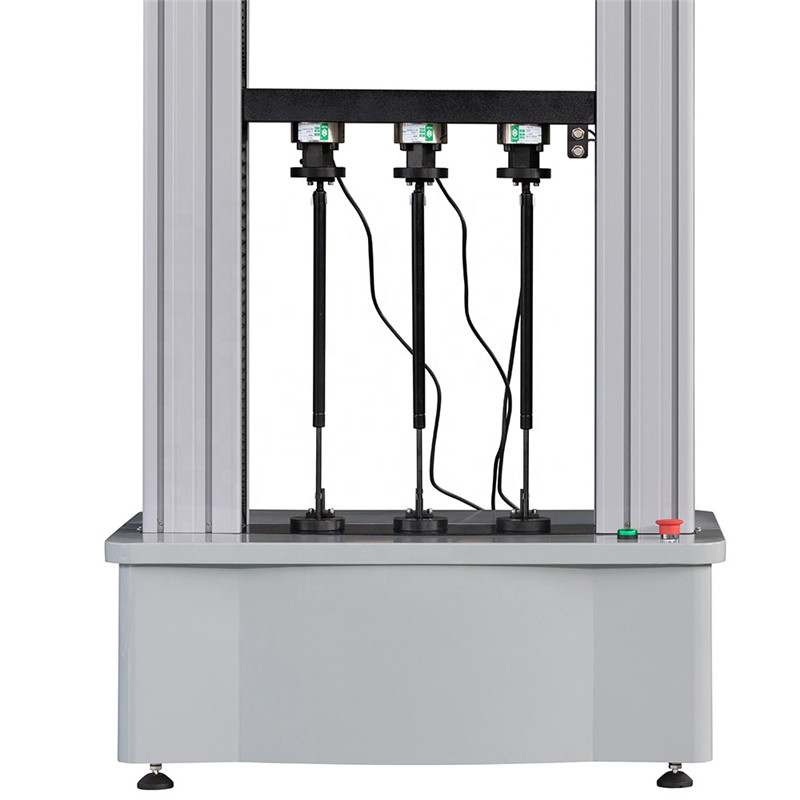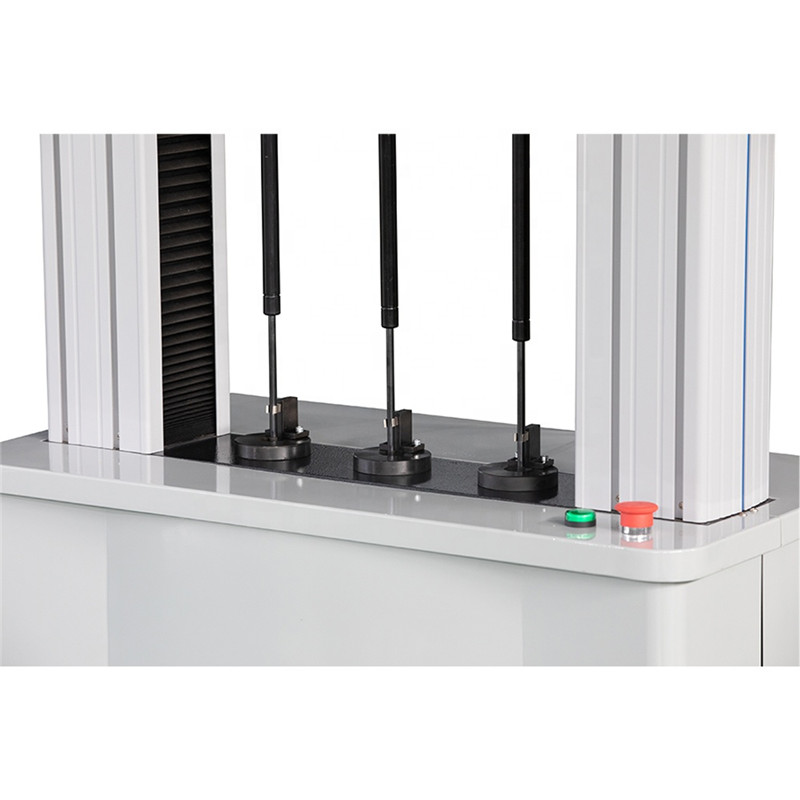Tensile testing is an important process in materials science and engineering used to determine the strength and elasticity of materials. This test is performed using a specialized instrument called a tensile tester, also known as a tensile tester or tensile test machine. These machines are designed to apply controlled tension to material samples, allowing researchers and engineers to measure their response to stress and strain.
Tensile testing machines are important tools for evaluating the mechanical properties of materials, including metals, plastics, composite materials, etc. It plays a vital role in quality control, research and development, and product performance evaluation in various industries. The machine is able to subject material samples to increasing amounts of tension until they reach breaking point, providing valuable data for the design and manufacturing process.
A typical tensile testing machine design includes a load frame, grips, and force measurement system. The load frame serves as the structural support for the test and houses the components responsible for applying the tensile forces. Clamps are used to hold the sample securely in place and transfer the applied force, ensuring the sample remains intact during testing. Force measurement systems typically feature load cells and extensometers that accurately capture the applied force and resulting material deformation.

Tensile testing machines are available in a variety of configurations to accommodate different sample sizes, shapes and testing requirements. Some machines are designed for high-volume testing of metals and alloys, while others are custom-built for testing polymers, textiles, and other non-metallic materials. In addition, advanced models may be equipped with environmental chambers for testing under specific temperature and humidity conditions to gain a complete understanding of material behavior.
The operation of a tensile testing machine involves holding a material sample within a fixture, applying increasing amounts of tension, and recording the corresponding stress and strain values. This process enables engineers to generate stress-strain curves that illustrate a material's behavior under tension and provide important insights into its mechanical properties such as ultimate tensile strength, yield strength, and elongation.
In research and development, tensile testing machines help evaluate the properties of new materials and verify their suitability for specific applications. For manufacturers, these machines are critical to ensuring the quality and consistency of materials used in their products, ultimately contributing to the safety and reliability of the final product.



When you are keen on any of our items following you view our product list, please feel free to make contact with us for inquiries.


Post time: May-10-2024

